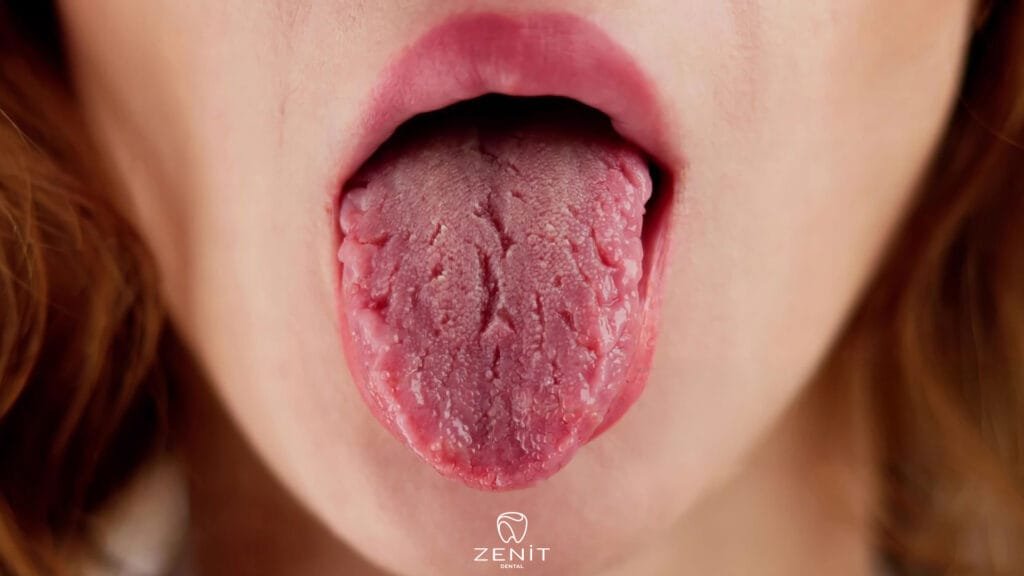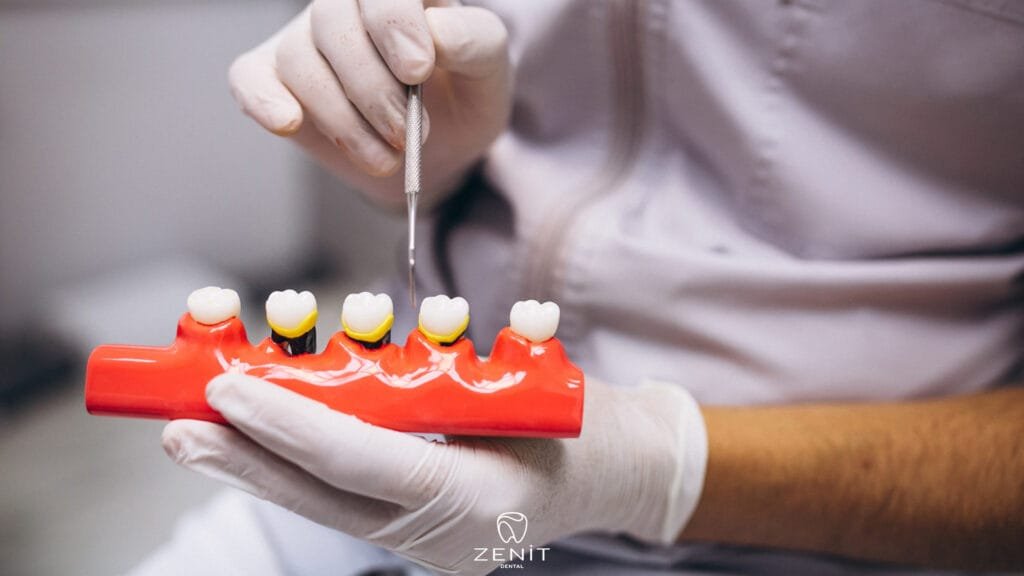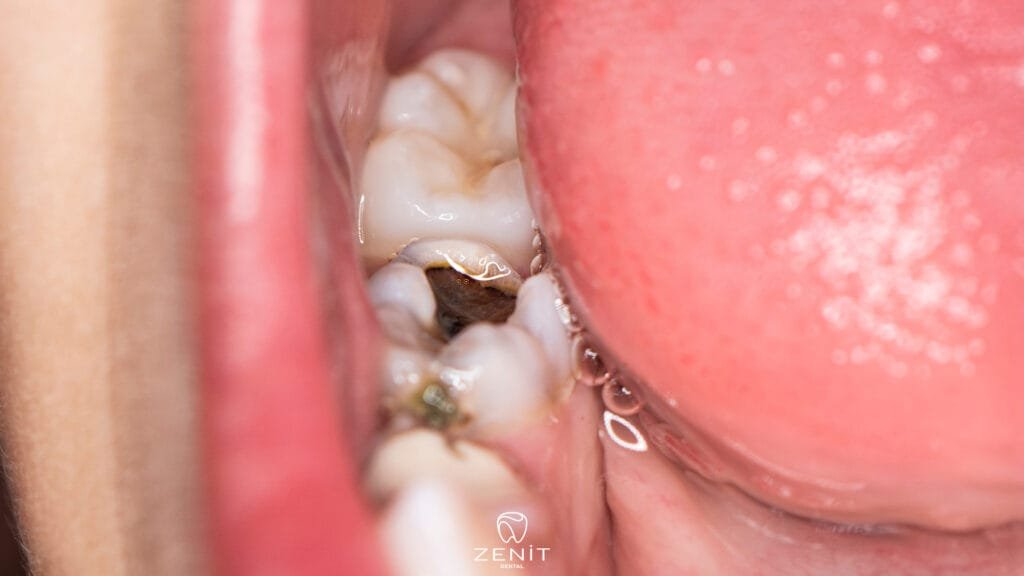What Causes Dry Mouth?
There are undoubtedly moments throughout the day when we unconsciously feel our mouth dry. It’s when we wake up in the morning, after a long conversation, or in the middle of a stressful day. The dry mouth experienced during these moments is often temporary and resolves on its own within a short time. However, unfortunately, for some people, this feeling becomes persistent. Dry mouth, medically known as “xerostomia,” is much more than just an uncomfortable sensation. Over time, it can make it difficult to speak, swallow, and even taste.
Insufficient saliva production in the mouth affects both oral health and overall quality of life. Saliva not only keeps the mouth moist; it also protects against bacteria, aids digestion, and strengthens tooth enamel. When saliva decreases, problems such as bad breath, tooth decay, gum disease, and cracked lips become inevitable.
While dry mouth can sometimes stem from simple causes, in other cases it can be a sign of serious health problems. This can be caused by insufficient water intake, side effects of medications, mouth breathing, hormonal changes, or chronic diseases like diabetes.
What is Dry Mouth?
Dry mouth is actually a much more serious condition than we realize. Simply put, when the salivary glands don’t produce enough saliva, the mouth loses moisture, causing a feeling of dryness. But the problem isn’t just a “dry mouth.” Saliva is the mouth’s natural protector. It keeps teeth clean, prevents bacteria from growing, helps break down food, and even makes speaking easier.
When saliva decreases, the mouth becomes virtually defenseless. Tooth decay occurs more easily, a burning sensation on the tongue increases, bad breath can occur, and even swallowing can become difficult. It becomes a discomforting condition that affects daily life.
Symptoms of Dry Mouth
Someone experiencing dry mouth often notices it immediately. That uncomfortable feeling of dryness can haunt you throughout the day. You might wake up feeling dry, your tongue might stick to the roof of your mouth when you talk, and sometimes even drinking water doesn’t bring the freshness.
Your lips crack easily, and your tongue feels burning or stinging. You might find it difficult to eat, swallow, or talk for long periods of time. Even your sense of taste may diminish; foods you once loved no longer taste as good.
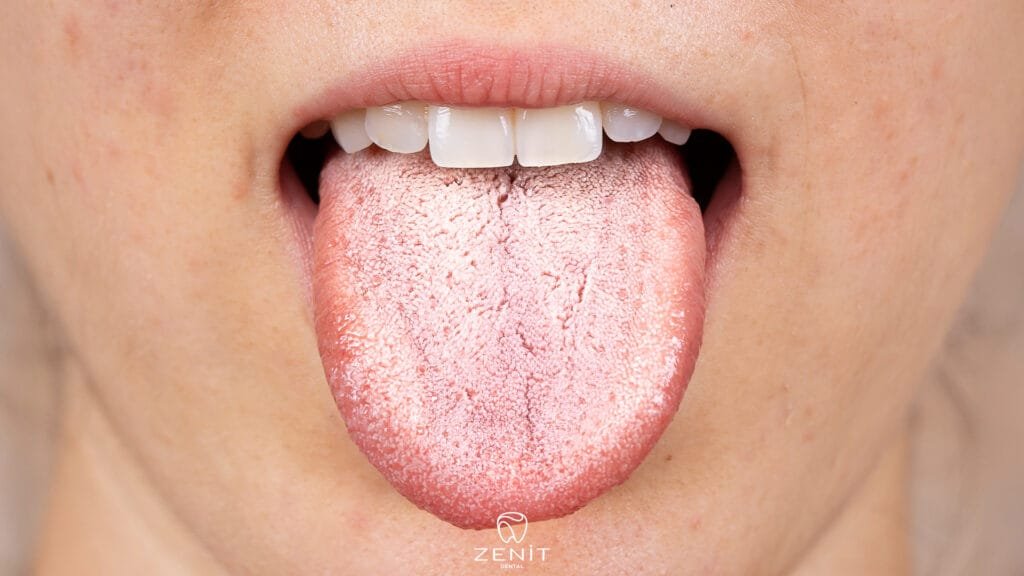
In addition, bad breath can cause social discomfort. Lack of saliva allows bacteria to proliferate. This negatively impacts teeth, leading to increased incidence of cavities and gum problems.
If these symptoms recur frequently, especially if they’re so bothersome that they wake you up at night, dry mouth may no longer be temporary but have become chronic. In such cases, consulting a dentist is the best course of action to understand the cause and find the right solutions.
Causes of Dry Mouth
There’s actually no single cause for dry mouth. Sometimes it can be simple neglect, or sometimes it can be caused by an underlying health problem. Sometimes it’s temporary, and sometimes it can persist for a long time, diminishing quality of life. Here are the most common causes of dry mouth:
Not Drinking Enough Water
Perhaps the most innocuous yet common cause. When we don’t drink enough water throughout the day, our bodies become dehydrated, causing our salivary glands to function less effectively. Liquids like coffee, tea, and alcohol, in particular, increase water loss, so even though we think we’re already hydrated, they actually have the opposite effect.
Mouth Breathing
Unintentionally breathing through the mouth, such as during nasal congestion, allergies, or snoring, quickly dries out the mouth. This is because every breath taken through the mouth causes saliva to evaporate. Prolonged use can even cause sensitivity to the tongue and gums.
Medication Use
Some medications we use can reduce saliva production as a side effect. Antidepressants, blood pressure medications, diuretics, or allergy medications often have this effect. If you notice dry mouth after starting a new medication, this is likely the cause.
Stress and Anxiety
When our body is under stress, the salivary glands, like many other systems, are affected. We’ve all experienced dry mouth when we’re excited or anxious. These short-term symptoms are usually harmless, but chronic stress can permanently reduce saliva production.
Smoking and Alcohol
Smoking disrupts the salivary glands’ functioning balance, while alcohol both reduces saliva production and draws moisture from the mouth. When these two factors combine, dry mouth is inevitable. These habits not only cause dryness, but also contribute to gum disease and bad breath.
Certain Diseases
Certain diseases, such as diabetes, Sjögren’s syndrome, and Parkinson’s disease, can also affect the salivary glands. In these cases, treatment generally targets the underlying disease, not the dry mouth itself. However, dry mouth can be an early indicator of these conditions.
Radiation and Chemotherapy
Radiation therapy used in cancer treatments, especially when applied to the head and neck region, can damage the salivary glands. Chemotherapy drugs can also temporarily reduce saliva production. This often partially resolves after treatment is completed, but sometimes it can leave permanent effects.
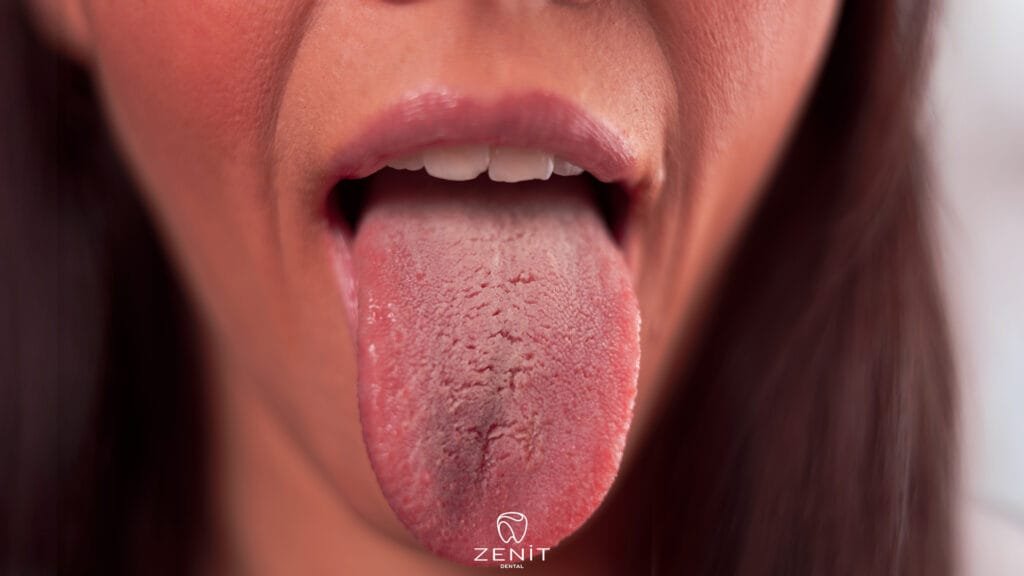
How to Treat Dry Mouth
Dry mouth can be a bothersome condition, but it can often be significantly alleviated with simple habit changes. Small but effective steps in your daily life can both improve your oral comfort and help maintain your oral health.
The most important thing is to make it a habit to drink plenty of water. Taking small sips throughout the day not only keeps your mouth moist but also stimulates the salivary glands. Drinking water plays a significant role in preventing not only dryness but also bad breath.
Another effective method is to chew sugar-free gum or use lozenges. This naturally stimulates the salivary glands. However, it’s important to make sure the products are sugar-free, as sugary gums can have the opposite effect and increase the risk of tooth decay.

